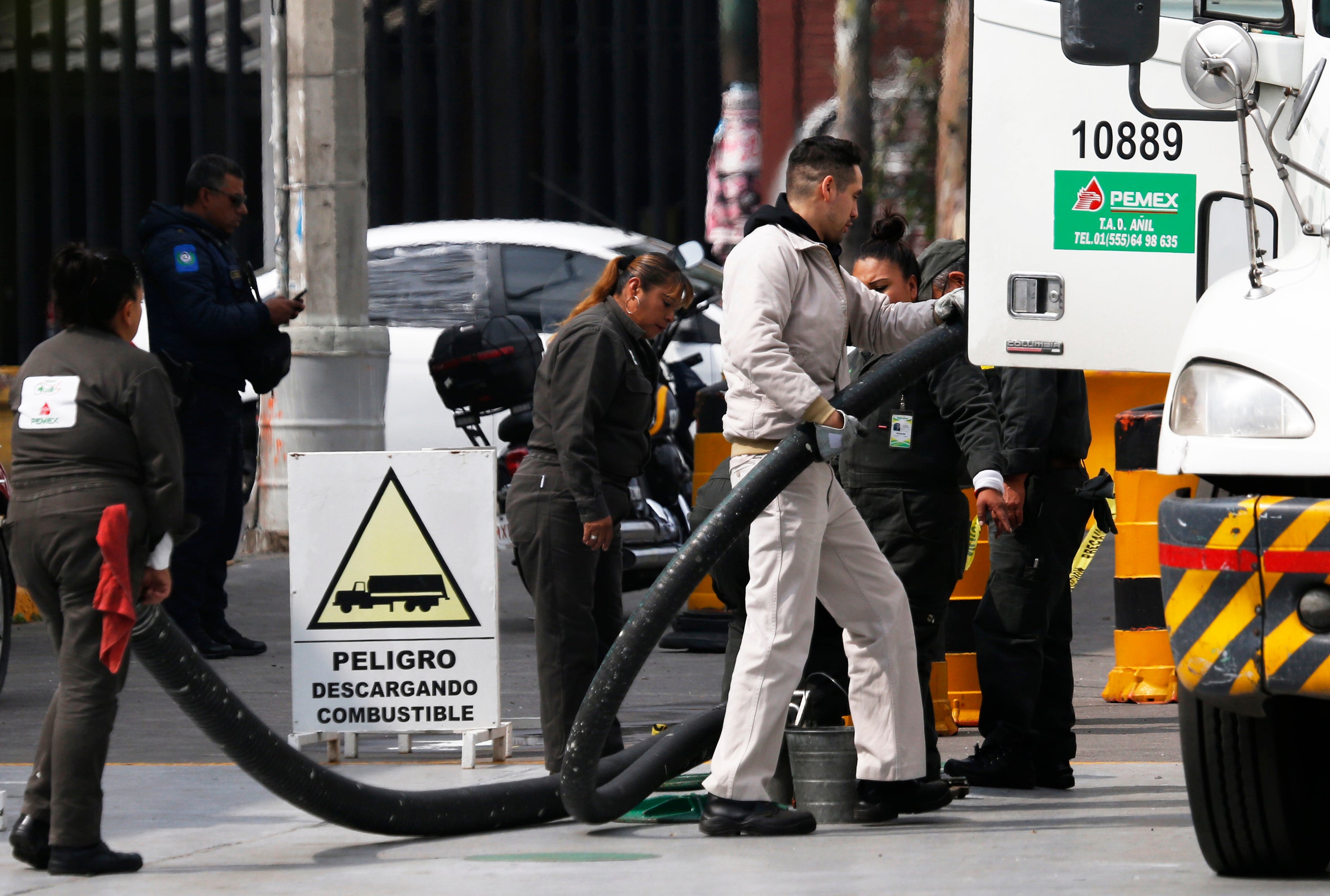Mexico president seeks to clamp down on private gas stations
Mexican President Andrés Manuel López Obrador has proposed yet another law to weaken private firms and strengthen the hand of an inefficient state-owned company

Your support helps us to tell the story
From reproductive rights to climate change to Big Tech, The Independent is on the ground when the story is developing. Whether it's investigating the financials of Elon Musk's pro-Trump PAC or producing our latest documentary, 'The A Word', which shines a light on the American women fighting for reproductive rights, we know how important it is to parse out the facts from the messaging.
At such a critical moment in US history, we need reporters on the ground. Your donation allows us to keep sending journalists to speak to both sides of the story.
The Independent is trusted by Americans across the entire political spectrum. And unlike many other quality news outlets, we choose not to lock Americans out of our reporting and analysis with paywalls. We believe quality journalism should be available to everyone, paid for by those who can afford it.
Your support makes all the difference.Mexican President Andrés Manuel López Obrador on Monday proposed yet another law to weaken private firms and strengthen the hand of an inefficient state-owned company, the latest in a series of measures aimed at turning back private-sector involvement in the energy sector.
López Obrador said the proposed law is meant to combat contraband gasoline imports. Mexico only allowed private gas stations starting in 2016, and they quickly took a large share of the market from state-owned Pemex whose franchised stations were known for low-quality fuel and shorting customers on the volume of fuel delivered.
The president argued that some of the private companies that entered the market have imported gasoline without paying taxes on it. Those companies could be closed, their stations taken over and given to Pemex to run.
But López Obrador revealed another motive behind the law — his nationalistic campaign to end gasoline imports. His pet projects include building oil refineries, and he also wants to rein in foreign companies that built wind and solar farms in Mexico.
“Now we depend on imports, which is something that is going to change by the end of this administration,” said López Obrador. “We are not going to sell (export) crude anymore, because we are going to process it all in our country, and we are going to produce all the gasoline we consume.”
“We have to be self-sufficient, these are strategic activities so that Mexico can continue to be an independent and sovereign country," he said.
Mixing the two issues — tax evasion and energy sovereignty — in one law, with very vague language makes for a strange mix that business groups say could lead to de-facto expropriations.
The bill now before Congress would allow the government to seize private gas stations or terminals in case of “imminent danger to national security, energy security or the economy,” and give them to Pemex to run.
The Mexican Institute for Competitivity, a think tank, said in a statement that “in reality, this would represent a direct expropriation," and could chill the climate for private investment in Mexico.
“With the aim of maintaining Pemex as the predominant player in the oil sector, this bill seeks to displace private companies in the industry, under the threat of expropriating their facilities under the very unclear criteria of national security, energy security or the economy,” the group wrote.
López Obrador has already gotten Congress to pass laws to give the state-owned electrical power company preference over private renewable and natural-gas generating plants, even though many of the state-owned plants burn dirtier fuels like fuel oil, coal or diesel.